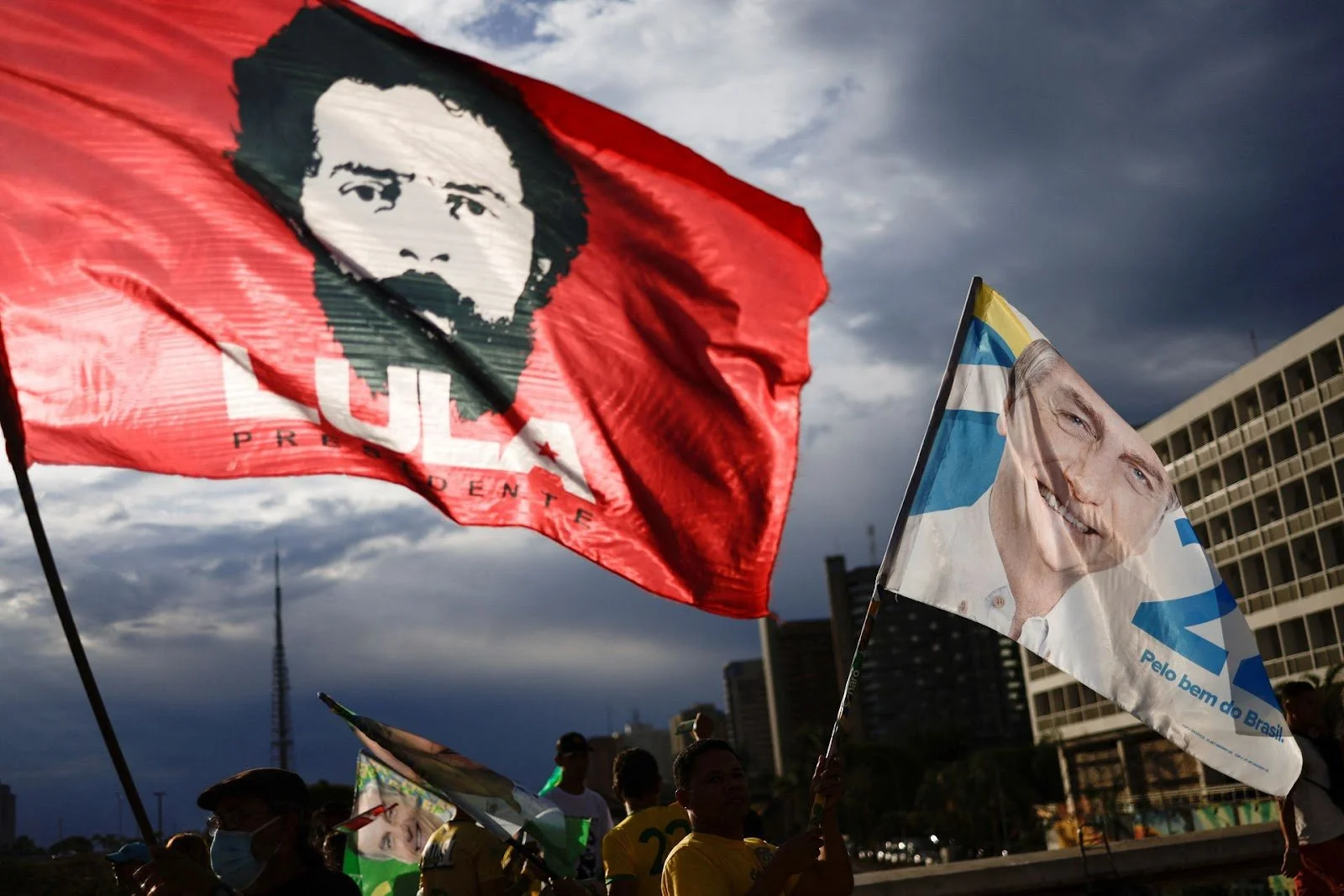Supporters of Brazil’s Bolsonaro Call for a Military Coup
Supporters of Brazil's President and candidate for re-election Jair Bolsonaro and Brazil's former President Luiz Inacio Lula da Silva hold flags as election campaigns continues in Brasilia, Brazil. Source: Reuters/Ueslei Marcelino
Brazil held a second round of presidential elections after no candidate won an outright majority in the first round on Oct. 2.
The runoff race was between the incumbent far-right Jair Bolsonaro and leftist Luiz Inácio Lula da Silva, who were the top victors of the first election. Lula claimed victory with 50.9 percent of the vote compared to Bolsonaro’s 49.1 percent. Lula will assume the presidency on Jan. 1, 2023. The highly contentious contest has been observed closely by avid supporters of both candidates as well as by the international community.
Lula held the presidential office between 2003 and 2010. He was a popular leader best known for his social welfare programs. In 2016, Lula was arrested on corruption charges due to a kickback scandal, and was ineligible to run in the 2018 elections, which Bolsonaro won. His corruption conviction was annulled by the Supreme Court due to bias in the investigation, but his reputation remains tarnished.
In the days following the announcement of the election results, tens of thousands of Bolsonaro supporters have turned out to protest. In all 26 states of Brazil, individuals gathered near military bases and demanded an intervention by the armed forces, rallying around accusations of election fraud and Lula’s past corruption scandals.
Truck drivers, one of Bolsonaro’s largest electoral blocs, blocked roads and jammed traffic. This led to supply chain issues, especially shortages of fuel and medical supplies. Bolsonaro called for truckers to end the blockades while simultaneously supporting general protests.
People attend a protest over Brazil's President Jair Bolsonaro's defeat in the presidential run-off election, in Anapolis, Goias state, Brazil. Source: Reuters/Ueslei Marcelino
These protests were encouraged by the fact that Bolsonaro spent months before the election claiming that voter fraud was a real possibility and the incumbent leader has still avoided conceding his loss. Although he refused to officially accept the results, he broke his silence two days post-election and promised to respect the Brazilian constitution. Meanwhile, many Bolsonaro allies distanced themselves from the situation and congratulated Lula on his victory. A significant political transition has begun as the outgoing and incoming administrations meet to begin discussions.
Bolsonaro’s close, yet controversial, relationship with the military raised concerns for a legitimate threat of military intervention. Bolsonaro himself is a former army captain, and many of his government and cabinet positions are filled by military figures. He notably professed nostalgia for the US-backed Brazilian military dictatorship of 1964 to 1985 known for its human rights abuses, including murders, torture, and imprisonment of opposition figures, as well as serious economic mismanagement.
Despite the Defense Ministry claiming these protests were lawful, they also emphasized that the armed forces are “guided by the Federal Constitution." A retired cavalry general, Paulo Chagas, explained that “the military knows full well what their duty is: the constitution does not allow them to intervene in politics."


